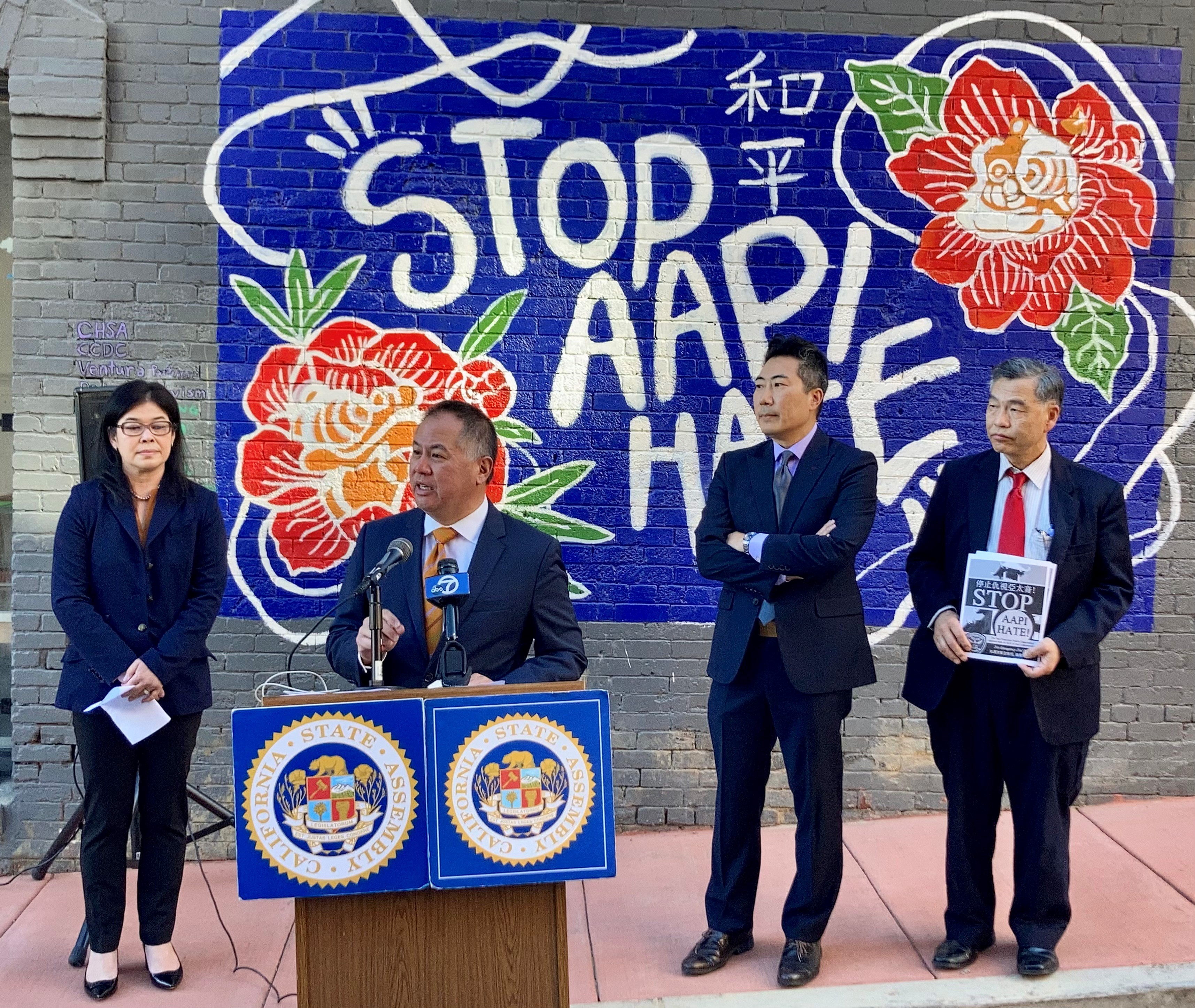Legislation is in response to rising hate incidents against AAPI Community

Sacramento – All California law enforcement agencies may soon be required to adopt a hate crimes policy after the state Assembly today passed AB 1947 by Assemblymember Phil Ting (D-San Francisco). Protocols for how authorities should recognize, report and respond to hate crimes would be standardized under this legislation, bringing consistency to responses victims receive and the information being collected. The bill’s passage comes as the number of hate crimes and incidents targeting Asian Americans and Pacific Islanders (AAPIs) have increased.
“In order to address a problem effectively, we all have to be on same page. That means we need to have standardized policies and treat cases the same way. As the AAPI community continues to face violence and harassment solely based on their race, consistent enforcement of hate crime laws and accurate data collection will help us come up with solutions,” said Ting who also championed a $166 million budget package last year to address AAPI hate.
Inconsistent information leads to an incomplete picture of hate in our state. Back in 2019, the FBI found eleven California cities with at least 100,000 residents reported zero hate crimes. In 2018, the State Auditor found law enforcement in California inadequately identified, reported or responded to hate crimes. The findings further concluded the state’s hate crimes are under-reported by 14% due, in part, to outdated or non-existent policies.
Now is the time to bring uniformity. As COVID-19 spread, necessitating shutdowns and restrictions, frustrations were taken out on members of the AAPI community, which has been wrongly blamed for the pandemic. The Center for the Study of Hate and Extremism report shows large increases in anti-AAPI hate crimes in major cities across the country last year, including an astonishing 576% in San Francisco and 173% in Los Angeles when compared to 2020 figures.
“Since the start of the pandemic, Asian Americans, and especially women and the elderly, have been targeted by a staggering increase in hate, bias, and violence. I'm proud of California and Assemblymember Phil Ting for taking the lead in fighting hate crimes by providing law enforcement members with tools to identify a hate crime when they see it. This law is an important step to help protect vulnerable communities who have been living in fear,” said Charles Jung, the Executive Director of the California Asian Pacific American Bar Association.
While AB 1947 was inspired by the surge in AAPI hate, the legislation would apply to all races, religions, disabilities, genders, sexual orientation, and other protected characteristics. Researchers from the same report cited above found hate crimes were up 11%, with African Americans remaining the most targeted community. They also noted a resurgence in anti-Semitic hate crimes. Ting’s bill would:
- Sets the floor for a hate crimes policy standard for the Commission on Police Officer Standards and Training (POST), including definitions, responses, reporting responsibilities, training and prevention; POST will have the latitude to add to those standards
- Require law enforcement agencies in California to implement those POST standards
- Obligate law enforcement agencies to file their hate crime policies with the Department of Justice, which will then post information about compliance and non-compliance
Ting’s AB 1985 from 2019 required agencies that were updating their hate crime policies to adopt the POST standards. AB 1947 builds on that law by mandating that all law enforcement in California adopt them. AB 1947 now heads to the Senate for consideration.
Earlier this week, the Assemblymember’s other hate-related legislation, AB 2448, was also approved. It requires larger businesses to train employees on how to spot and report discrimination and harassment when interacting with the public.
# # # # #